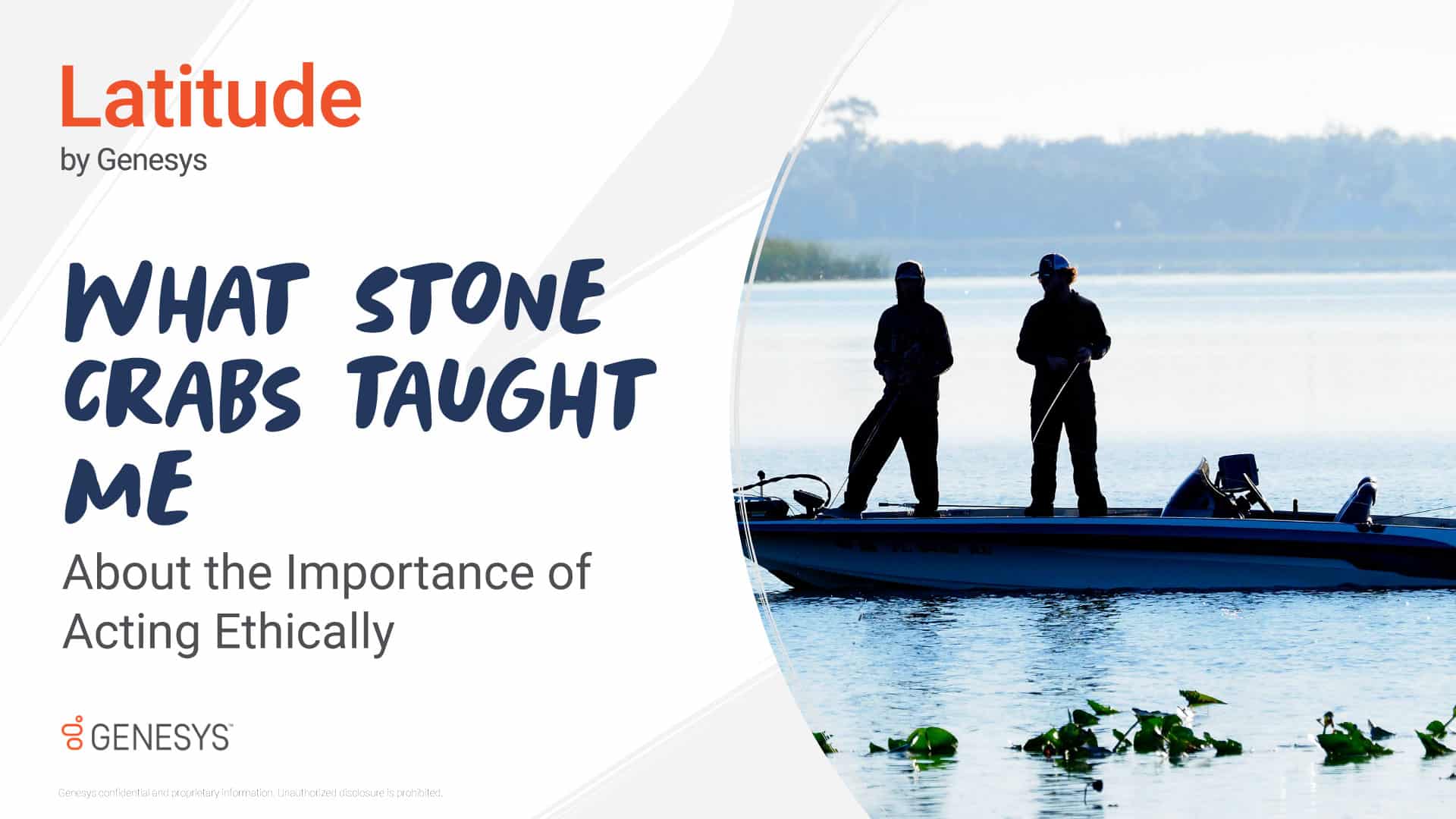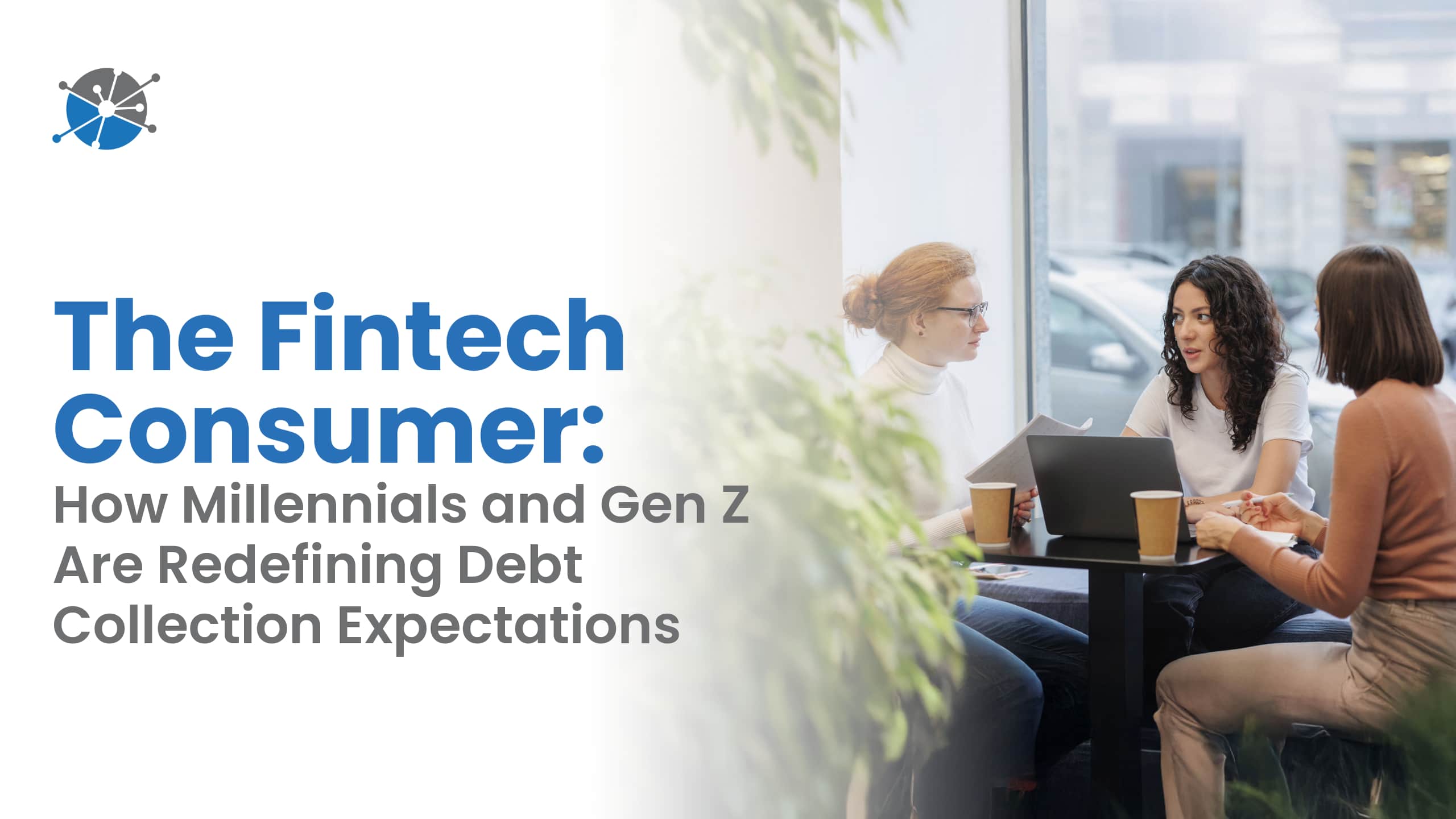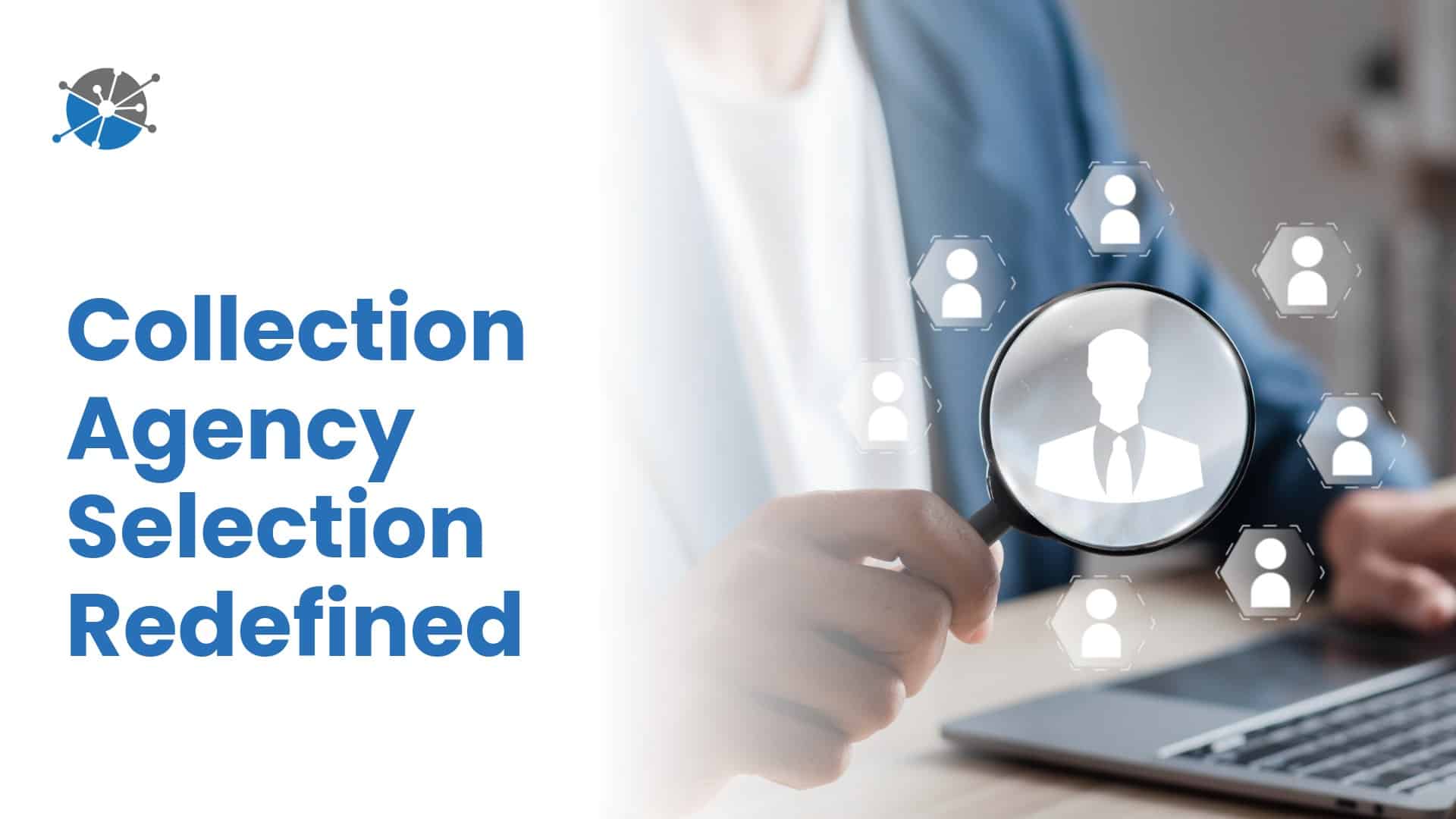
What Stone Crabs Taught Me About the Importance of Acting Ethically
At a recent Accounts Receivable event, I was struck by how much of our curriculum was focused on compliance and ethical collections. As someone who is on the periphery of actual collecting of debt (my firm, Latitude by Genesys, is a software provider), I have definitely seen a major shift over my eighteen years at these events. Acting and collecting ethically is at the forefront of all successful agencies, despite what preconceived notions people might have about the ARM industry. Unfortunately, I think the inverse is true for other professions that I once used to hold in high regard.
Then my mind drifted to stone crabs…
In the Fall of 1994, I was a college student at the University of Florida with a dream of being a TV Reporter. In my Reporting class that semester, we were split up into 2-person teams and assigned a controversial issue to cover, shoot and edit with the goal of these news “packages” being broadcast on the local PBS station on their 5:30 local newscast. My classmate, Russell, and I were assigned to cover a proposed gillnet fishing ban on the coastal Florida waters. On one side were the sport fishermen and conservationists, who were in favor of the gillnet ban. On the other side were the commercial net fishermen who had used gillnets for decades to fish the shallow waters around the coast, primarily to catch mullet.
Russell and I lugged the heavy TV equipment out to Cedar Key to interview both sides of the story and get footage of both sides fishing: the sport fishermen with rod, reel and powerboats, and the net fishermen with hundreds of yards of gillnets. I was moved by both sides of the issue but felt particularly sympathetic to a fifth-generation fisherman who believed his livelihood of mullet fishing would be destroyed by the gillnet ban. He allowed us on his boat to interview and videotape him doing his job.
A compelling story and a more compelling offer
Listening to him tell his story on camera while we captured footage of him reeling in his nets by hand with mullet was impactful. This was the age of Farm Aid, and like a small family farmer, the image of a simple fisherman with a small boat making his living the same way his great-grandfather did personalized the story in a very authentic way. The emotion in his interview was unmistakable. He was bitter. At that time, it looked clear that the net fishing ban was a lock for passage that November. He would be one of hundreds of small Florida fishermen thrown out of work by the gillnet ban.
As much as I personally empathized with him, it was our job to present a story that accurately captured the issue dispassionately and without favor to either side. There was a great deal of conflict between the net fishermen and the sport fishermen with each side hurling accusations of political trickery around the messaging to the Florida voters. Russell and I simply had to be straight down the middle with our story.
And then our college-boy stomachs got in the way.
As we were packing up the gear on the dock in the Cedar Key sunset, other commercial fishermen were coming in from their day of harvest. A nightly ritual amongst the fishermen was to trade catches with each other to take home for dinner. One of them was a Florida stone crab fisherman. If you are not familiar with stone crab claws, they are a Florida delicacy, fetching big money at many coastal restaurants. They are delicious.
On the dock, we learned that the claws are harvested by catching hundreds of stone crabs in pots on the sea floor. The pots are pulled up, and if the crab has claws big enough, one of them is yanked off and the crab is returned to the sea floor where that claw will re-grow in about a year’s time. The other claw remains so the crab can protect and feed itself. The harvested claw is cooked immediately, right on the boat, and then packed in ice for the distributor. However, occasionally during cooking, the crab claw will crack. Cracked claws, even though the meat inside is still perfectly good, are not commercially viable for the restaurants that buy them. Diners simply do not want their claws cracked when they arrive on the dinner plate.
So the fisherman, stuck with claws he cannot sell, would simply share them with his brethren on the docks. Any leftover would simply be thrown away. Stone crab claws—pounds and pounds and pounds of them—into the garbage.
“Do you guys want any of these before I throw them away?”
Did he mean to say, “Do you two kids working your way through J-school, and who could never afford stone crab, want as many delicious crab claws as you can carry?”
Uh, yeah.
We grabbed as many as we could stuff in a plastic bag, approximately 30-40 claws, loaded up the camera gear and headed back. We were extremely popular with our roommates when we got home and had an amazing feast filling our bellies with stone crab. Nobody at those fancy seafood restaurants in Miami had it better than us that night.
A lesson learned
The next day in the newsroom we were telling our tale to anybody who would listen. Nobody could fathom our marvelous luck while we were covering this controversial story.
“Cris! Russell! Get. In. Here. NOW!”
That was our news director yelling across the newsroom. She was also our class professor.
In a way that can only be described as “measured anger,” our news director explained to us knuckleheads the terrible decision we made and the journalistic ethics we had ignored. “But this was garbage! The claws were going to be thrown away,” we argued. She patiently explained to us that it didn’t matter. Journalists simply cannot be seen as being “bought,” particularly on a sensitive political issue like this.
Even though the food would be thrown away, we should not have taken it. The conservationists and sport fishermen would have a field day calling us biased for taking what could be construed nicely as a favor, or more harshly, a bribe for favorable news coverage. I remember her telling us if she had known what had happened, she would have driven over to our apartment that night and made us drive back to Cedar Key and give the bag of crab claws back.
Nearly thirty years later, this meeting in her office still resonates with me today. Ethics matter. Especially for professions that must constantly strive for impartiality. And even if the value of the gesture supplied is literally garbage, the image of impropriety puts an odor on the offender that cannot—and probably should not—be washed away. I expect more from these professions, and I find it sad that many practitioners I once admired have long abandoned these principles. Let me be clear, I am talking about lawyers, judges, journalists and public servants. Accepting even trivial favorable treatment is undesirable, let alone luxury vacations and sweetheart financing deals. It’s wrong, and it will always be wrong.
The power in a Code of Ethics
Now, I haven’t practiced journalism for over twenty years. I’m in the corporate software world, where some people think ethics are optional. It’s so bad that many of us simply operate in the “that business” or “that guy” is out to screw me from the get-go, and then try to operate or negotiate from there. I want to strive every day to act ethically with my customers, prospects, co-workers and partners.
Having a personal relationship with ethical behavior is easy when your company has rules and policies codified into its DNA. Genesys has the strongest Code of Ethics that I’ve seen. Having a clearly written set of rules behind me acts as a shield in front of me. I recently had a customer simply not believe what I was telling him was true. It was clear he had been hurt by other providers in the past. He had trust issues. I had the pleasure of simply affirming what I said was true, that he could trust me, and I have a Code of Ethics that I adhere to that can help him trust me.
If you do not have a similar code of ethics at your company, I challenge you to become a champion to create one. Building trust is a day-to-day activity, but it doesn’t have to be hard work with a strong Code of Ethics baked into your DNA.
I thank my college professor and News Director for teaching me such a powerful
lesson. I relied on it as a working journalist. I rely on it today as a software executive. Am I perfect? Of course not. But I’m working at it.
And that tough customer? Next time I see him, maybe we can go dutch on some stone crabs.
About Latitude by Genesys
Latitude by Genesys® is a comprehensive debt collection and recovery solution for managing all pre- and post-charge-off accounts and workflow processes. It provides collectors and agents with the tools to manage the debt collection and recovery process and provides full functionality for the collector’s or agent’s desktop and deploys as a true zero-footprint, browser-based environment. Since 1996, Latitude’s focus has been to provide the most forward-thinking, attractive solution to the business needs of different people and companies in the accounts receivable management (ARM) space. Acquired by Genesys in 2016, Latitude is continually growing, innovating, and reshaping the technology expectations and customer experiences of ARM companies and their consumers.
By Cris Bjelajac







